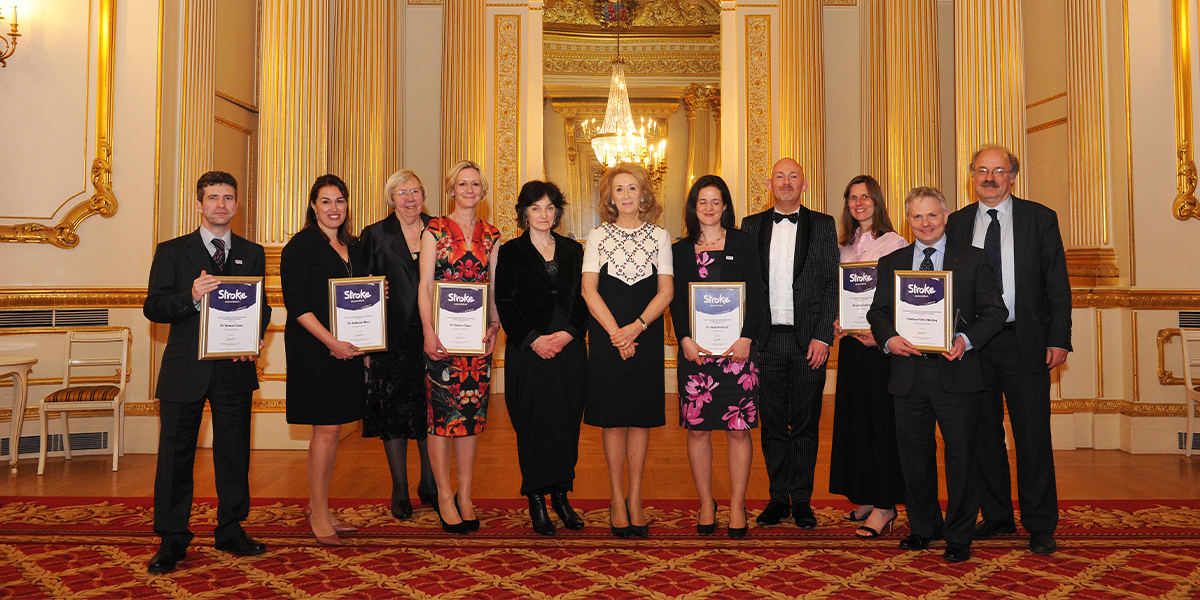2016 Keynote Lecture: One small vessel stroke? One giant problem for humankind
The Stroke Association's Keynote Lecture is a prestigious event that showcases the latest advancements being made in stroke research.
Professor Joanna Wardlaw CBE, University of Edinburgh, delivered the 2016 Keynote Lecture at Lancaster House.
Professor Wardlaw addressed 'small vessel disease' which is the most common cause of vascular dementia. Although vascular dementia is the second most common form of dementia, for too long there has been insufficient research into this disease.
Award Winners 2016
Following the Keynote Lecture, the Stroke Association proudly presented this year's seven awarded positions from across our portfolio of awards.
Professor Sir Mark Walport, Government Chief Scientific Adviser (GCSA) and Head of the Government Office for Science presented the awards on behalf of the Stroke Association.
Lady Estelle Wolfson joined Sir Mark on stage to present certificates to each recipient on behalf of the funders of the awards. The Lord Leonard and Lady Estelle Wolfson Foundation has generously funded our Priority Programme Award (in haemorrhagic stroke), awarded to Professor David Werring, University College London.
We were delighted to announce the following award winners. Please follow the links for further detail on each award winner's research:
Awardee: Dr Rebecca Fisher, University of Nottingham
Awardee: Dr Lesley Scobbie, University of Stirling
Awardee: Dr Terry Quinn, University of Glasgow
Awardee: Professor Hugh Markus, University of Cambridge
Awardee: Dr Katerina Hilari, City University
Awardee: Professor David Werring, University College London
Awardee: Dr Sarah Northcott, City University

Princess Margaret Fund for Stroke Research
The Princess Margaret Fund for Stroke Research provides a unique opportunity for philanthropists who care about stroke to invest in areas of stroke research that have the greatest potential to change our understanding of this disease and develop new life-saving treatments.
